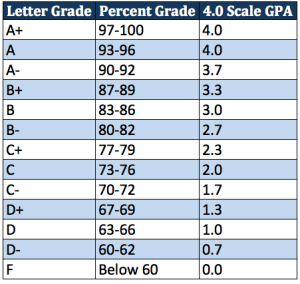Many students have a hard enough time going to class as it is, so the thought of adding additional time to their schedule in office hours is out of the question. Going to office hours also opens yourself to the possibility of feeling dumb, unprepared, and embarrassed in front of your professor.
So, I partly understand why college students aren’t flocking outside their professors’ offices. But, if these students want to save time and get better grades, then the easy choice is to regularly go to office hours. Here’s why.
Work Smart Through Office Hours
When you speak with the professor about a course, it’s like speaking to God about how he created the world. Your professor has all the answers, because they’re the creator of the assignment, the paper, and the exam.
And the greatest part is most teachers, in my experience, appreciate your effort to visit them and to learn the material that they’re extra helpful to a surprising degree.
For example, as a sophomore, I remember asking my biology teacher a simple yes or no question on if a certain section would be on the exam, since it wasn’t included on the study guide. Instead of answering yes or no, he went on to tell me all 7 terms that the exam would cover from that entire section and what I needed to know about each term.
When the exam came, I flew through those 7 questions and thought nothing of it. The next time we had class, everyone around me complained about not knowing any of the terms from this one section on the exam. When I asked what they were talking about, I learned it was the same section that my professor pointed out the 7 terms to me earlier that week.
So if I didn’t visit office hours and ask the question, then there’s no way I would have gotten the same insight, which helped me get an A on the exam.
This is one example of why the clever students use office hours all the time. They go to understand the most important exam material, get their paper edited, and receive rare insights that go unmentioned in the regular class period.
After all the help they’ve received, the top students think it’s insane to not visit office hours. And they’re probably mad at me for exposing their office-hours secret—I’m not sorry.
Knowing this, where’s your time better spent when you need information? Is it wiser to spend 30 minutes texting your classmates, searching online, and scanning the textbook for an answer you may never find, or visiting the professor to get a better answer in seconds?
Now that you know how going to office hours will make your life easier, you can start working smarter to get better grades and gain more free time. And don’t stop there, because there’s a big difference between simply going to office hours and getting the most out of office hours.
How To Maximize Your Time In Office Hours
Scheduling a day and time in advance.
Planning ahead to schedule a specific day and time with your professor will show you’re serious and that you won’t waste their time. Also, having an organized time will often hold you accountable to look at more of the material before the meeting, which isn’t a bad thing. And doing this will save you the unfortunate walk across campus (maybe in the rain or snow) to your professor’s office, only to see an empty office or have to wait what seems like forever until another student leaves the office.
Come a couple of minutes early.
When you’ve scheduled a specific time, you don’t want to start office hours on the wrong foot by showing up late. Some professors might not care, but others will let another student come in—who doesn’t have an appointment—and when you eventually arrive you’ll have to wait. Then, when it’s your turn, the professor may be less generous in their information and help.
Have two to four primary questions ready.
When I went to office hours before an exam, I always had a plan and it worked most of the time. First, I asked a couple specific questions for clarification on the material. These were helpful in getting the professor engaged in conversation. Then, I asked some general, open-ended questions to see what exam topics the professor gave the most attention. Since no one knows the exam better than the professor, many times what they emphasized turned out as the key exam topics.
Build a relationship with the professor.
You can start by asking questions outside of the course material, like how they’re doing, what’s new with their family, or their weekend plans. These questions can go a long way in moving past the student-teacher dynamic into a friendship dynamic. When you and your professor know each other well, your professor will be more inclined to fill you in about what’s high-importance for an assignment or exam.
Be appreciative of their time.
Send a quick thank-you email when you get home or say thanks for their time at the next opportunity you see them in class. Making your appreciation known will further develop the relationship and help yourself the next time you visit office hours. This small act won’t take much effort, but it can also help your case a little in the future if you ask for an internship or recommendation letter.
Readers, have you ever went to office hours and came out disappointed? Are you excited about this new approach to office hours? What other comments do you have about this topic?



